Is it safe to scuba dive while pregnant ? Many people find the underwater world fascinating and exciting.Scuba diving offers a unique glimpse into the mysteries of the deep.
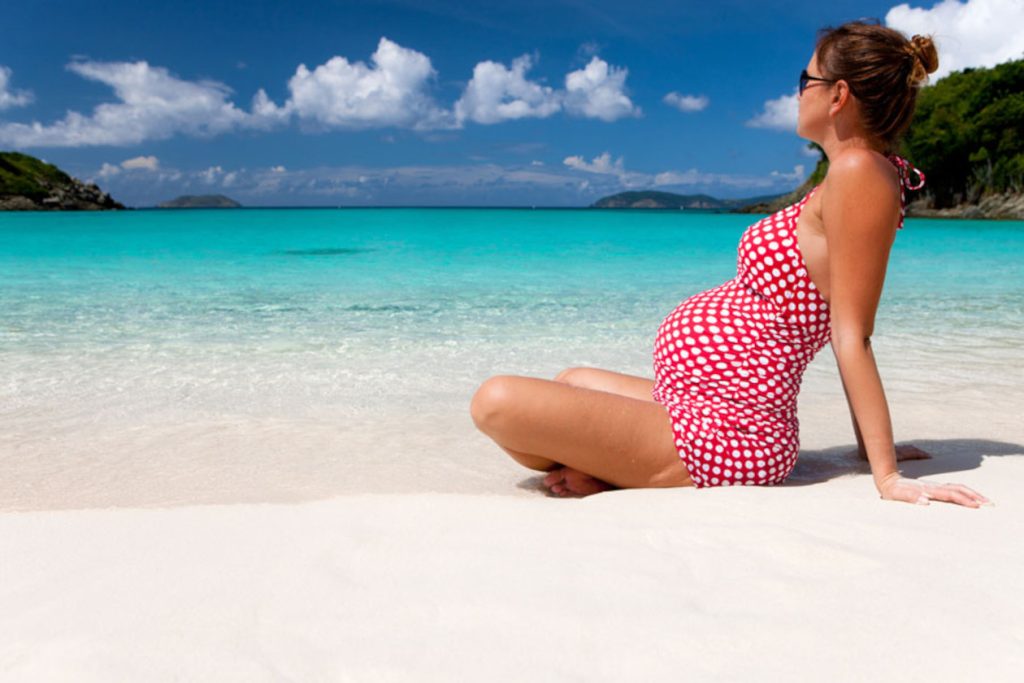
However, for pregnant women, a big question arises: is scuba diving safe during pregnancy?
In this exploration of scuba diving and pregnancy, we delve deep into the topic, considering various aspects and guidelines to ensure the safety of both the mother and the unborn child. Let’s unravel the complexities and weigh the risks associated with diving during pregnancy.
The First Trimester: Early Considerations
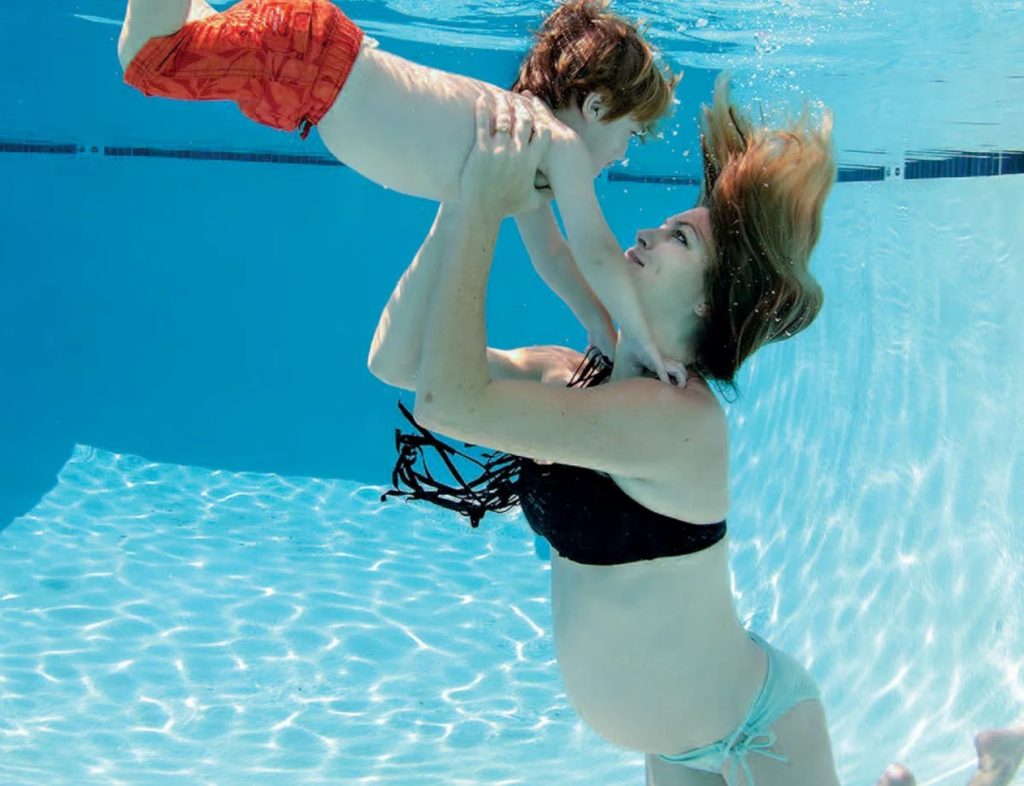
Pregnancy is a delicate phase, especially during the first trimester. Scuba diving during this time raises significant concerns. Medical experts generally advise against scuba diving while pregnant, particularly in the first trimester.
The fetus is in the early stages of development, and any potential risk factors must be minimized.
Shallow Diving: A Safer Option?
Some might wonder if shallow diving is a safer alternative during pregnancy. While the risks might be reduced in shallower waters, it’s important to note that any form of diving carries inherent dangers.
Even in shallow depths, factors like pressure changes and potential accidents could pose threats to the expectant mother and her baby. Safety should always be the top priority.
Freediving and Pregnancy: A Cautionary Tale
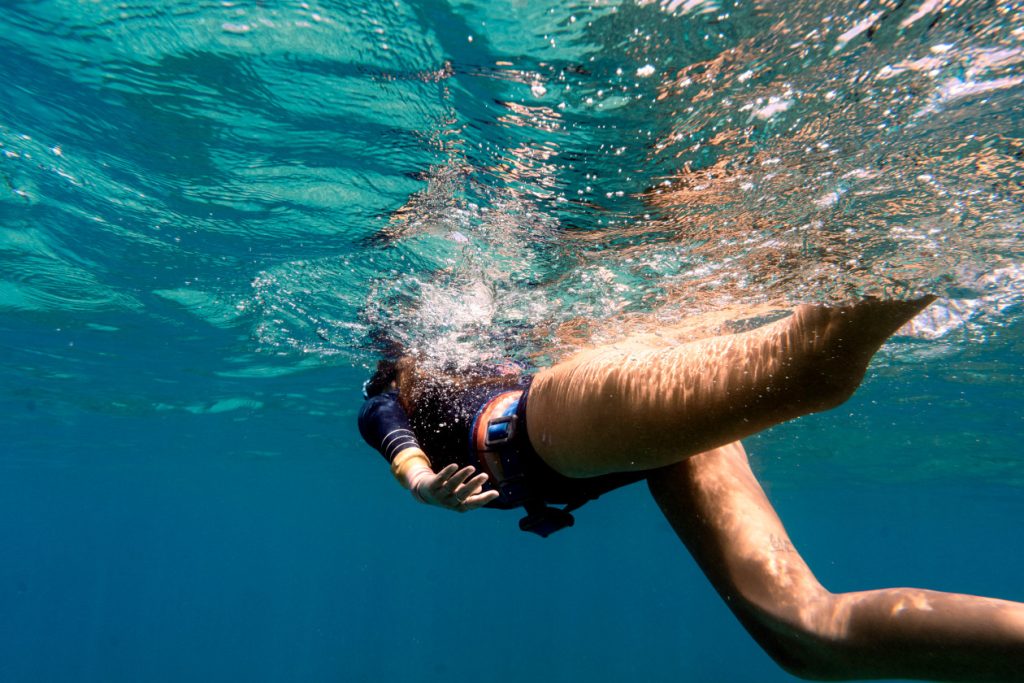
Freediving, another captivating underwater activity, involves diving without breathing apparatus. While it might seem less complex than scuba diving, it still poses risks, especially during pregnancy.
Freediving involves breath-holding, which could lead to oxygen deprivation for both the mother and the fetus. This lack of oxygen could have adverse effects on the baby’s development.
Diving-induced Decompression Sickness (DCS) occurs when nitrogen, a component of air, enters muscles under high water pressures. Deeper dives lead to increased pressure, causing excess nitrogen absorption. Upon resurfacing, nitrogen expands, forming bubbles that damage tissues and vessels, triggering symptoms like joint pain and fainting.
Decompression Sickness
DCS or decompression sickness poses unique risks during pregnancy; fetal nutrition depends on maternal blood via the placenta. Since growing fetuses lack lungs to filter out toxic nitrogen bubbles, exposure can harm development.
Treatment involves hyperbaric oxygen therapy, a procedure potentially hazardous to fetuses. Animal studies, including sheep, reveal severe abnormalities due to diving-induced pressure changes, highlighting risks to human pregnancies.
Diving Beyond the First Trimester: Considerations and Precautions
As the pregnancy progresses, some might wonder if diving becomes safer in later stages. While the risks might decrease in some aspects, the physical changes in the mother’s body, such as increased weight and altered balance, can affect diving abilities and safety.
The consensus among medical professionals remains steadfast: it’s safest to abstain from scuba diving throughout the entire pregnancy.
Expert Opinions and Guidelines
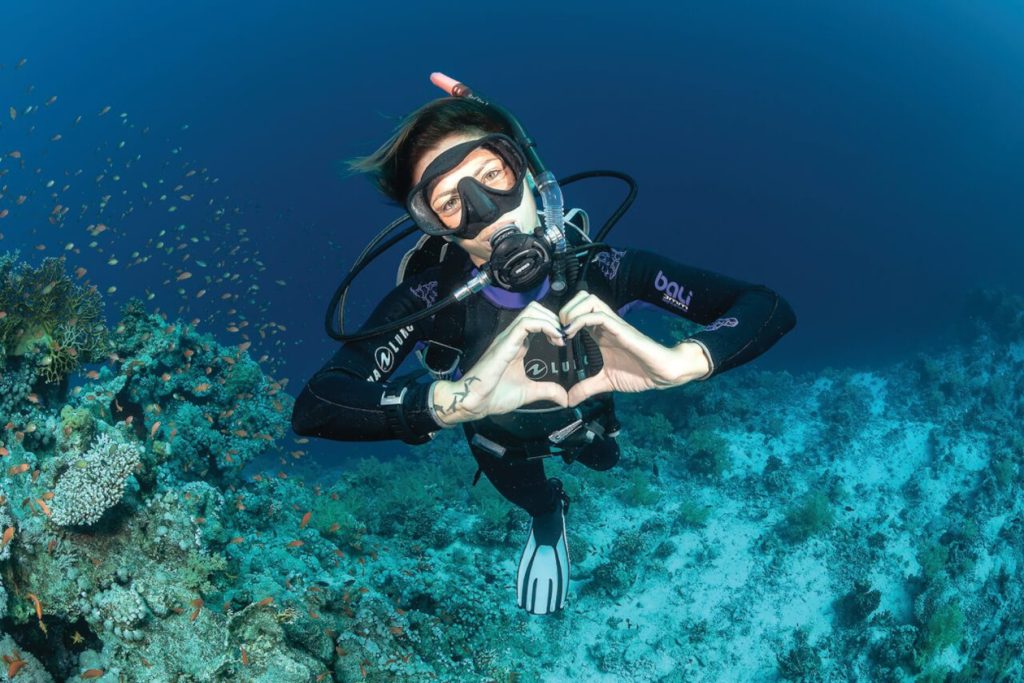
Leading diving organizations, including PADI and DAN, emphasize the importance of avoiding scuba diving while pregnant. These organizations set industry standards and provide guidelines to ensure the safety of divers.
Pregnant women are encouraged to follow these expert opinions, prioritizing their health and the well-being of their unborn child.
How Deep Can You Dive While Pregnant?
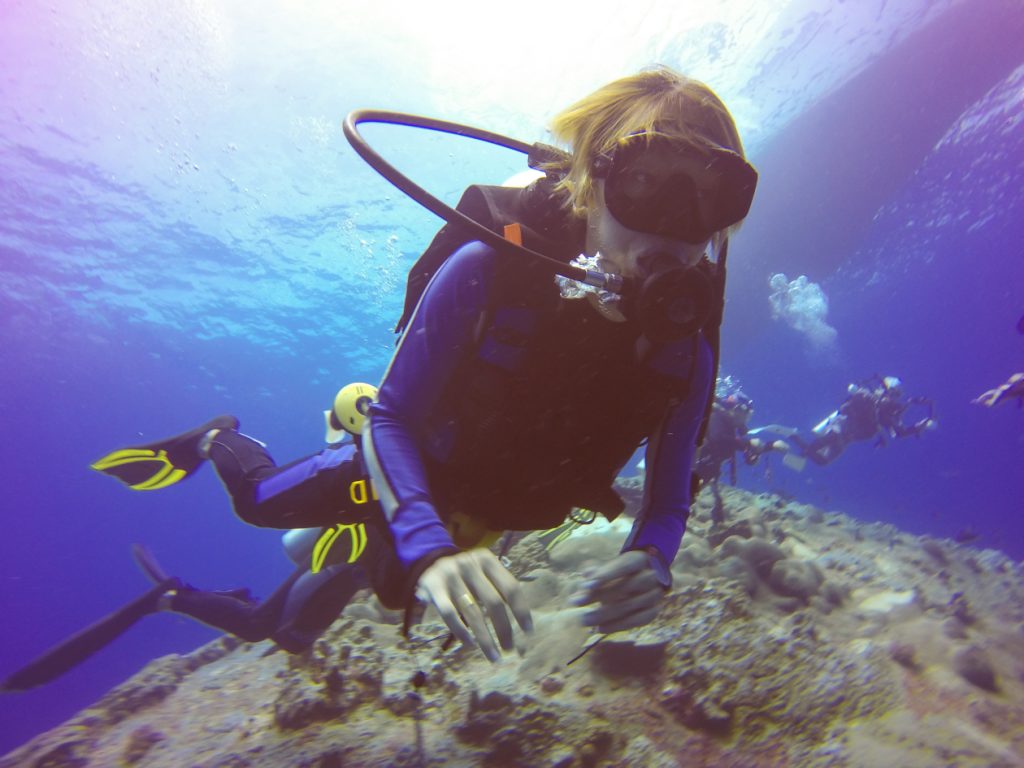
Medical experts globally strongly discourage scuba diving during pregnancy due to potential risks. During the initial 0 to 6 weeks of gestation, when many women are unaware of their pregnancy, diving below 20 meters is generally considered safe.
However, even shallow diving between 6 to 13 weeks carries some risk and is best avoided. Beyond this period, from 13 to 40 weeks, visibly pregnant women are typically not permitted to dive.
The last trimester is especially perilous, emphasizing the importance of caution. Aerial Gas Embolism (AGE), a form of Decompression Sickness (DSI), can occur in waters as shallow as 1.2 meters.
This condition arises when air bubbles interfere with blood circulation to the fetus, potentially causing direct tissue damage, underscoring the need for pregnant individuals to avoid underwater activities.
Diving Postpartum: Returning to the Depths Safely
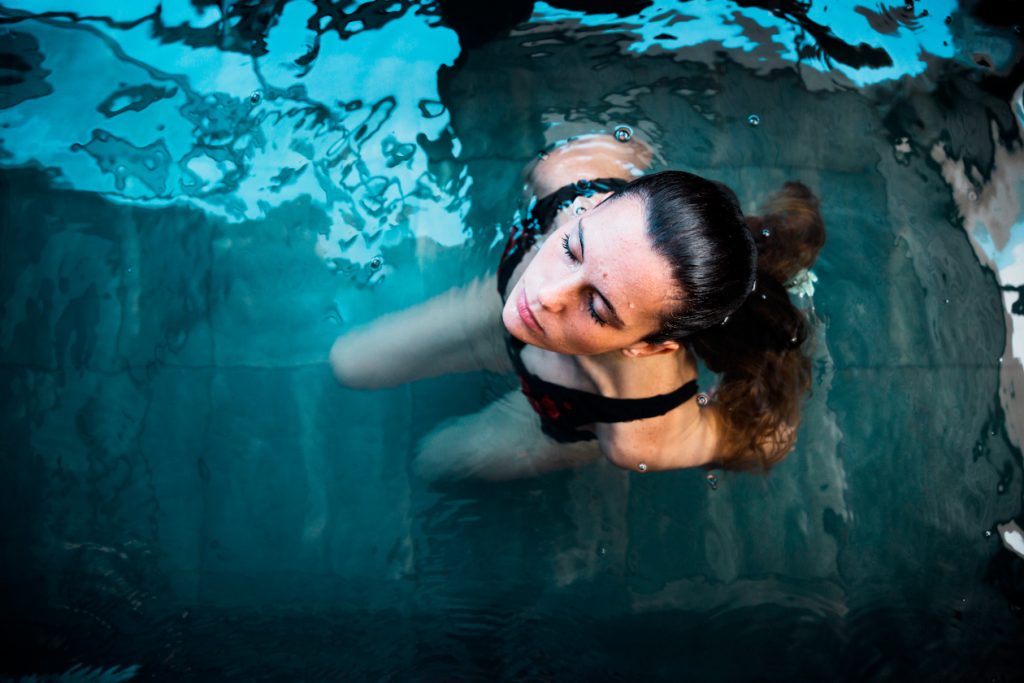
After childbirth, the body undergoes a period of recovery.
The timeline for resuming diving postpartum varies from woman to woman. It is crucial for new mothers to consult healthcare providers, discuss their individual circumstances, and evaluate their physical readiness before considering a return to diving.
Patience and caution are essential during this phase.
Balancing Adventure and Responsibility
In the dance between adventure and responsibility, expectant mothers must prioritize the safety and health of their unborn child. While the underwater world beckons with its enchanting beauty, the risks associated with scuba diving during pregnancy are substantial.
By making informed decisions, consulting medical experts, and adhering to industry guidelines, pregnant women can navigate these waters responsibly.
As the tides of pregnancy ebb and flow, embracing caution ensures a safe and healthy journey, both for the mother and the precious life she carries within.
